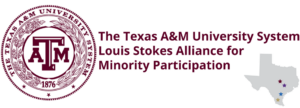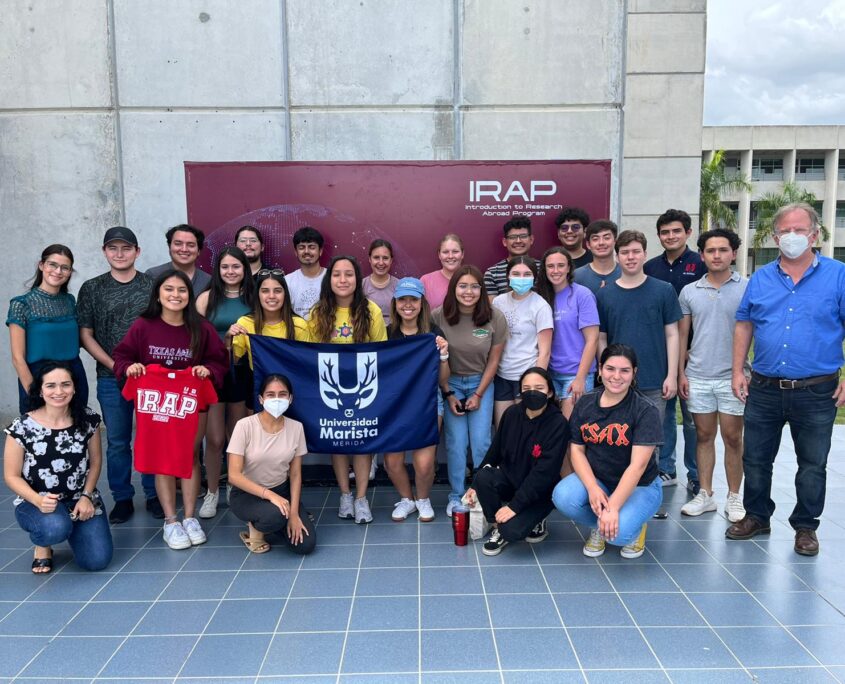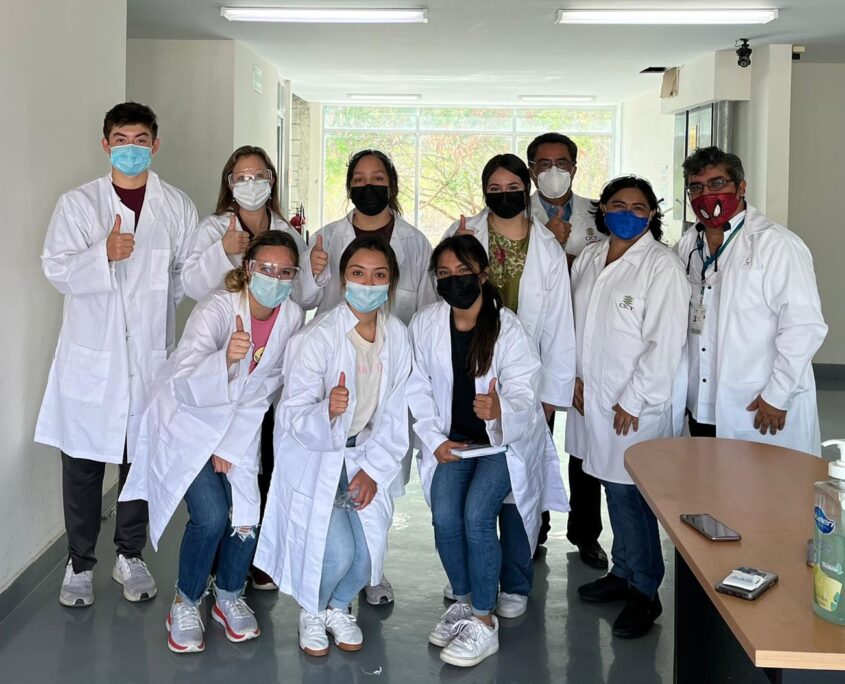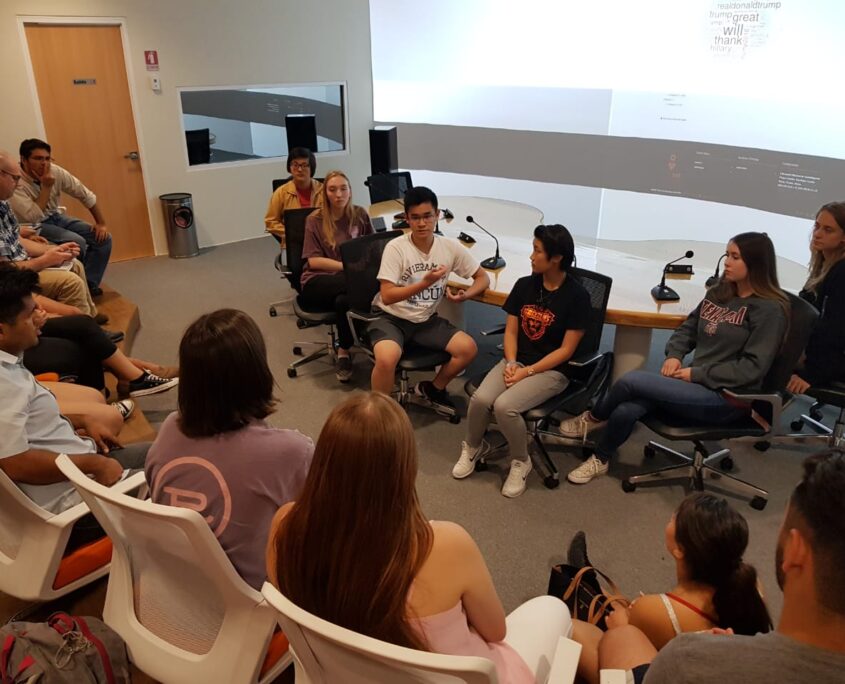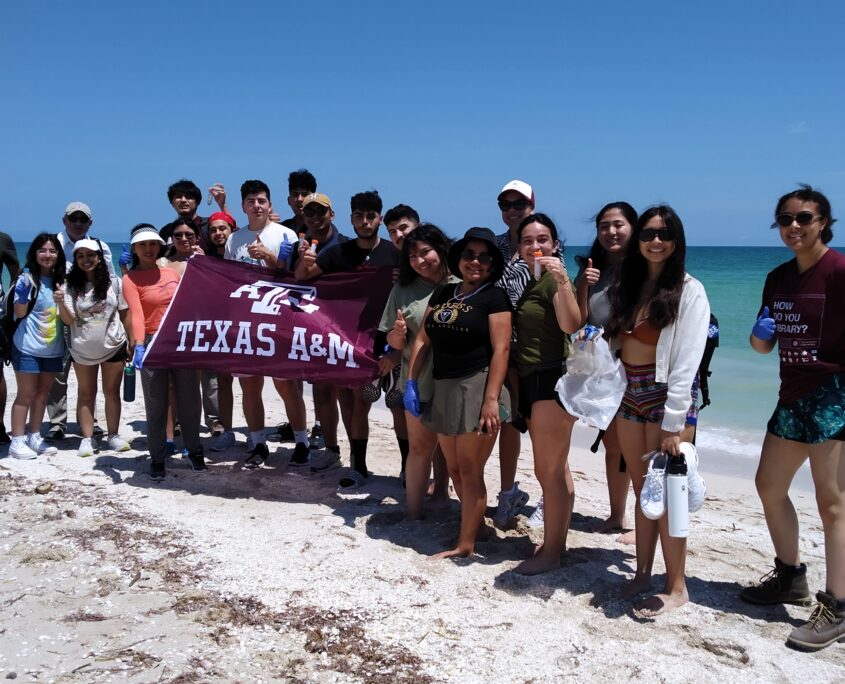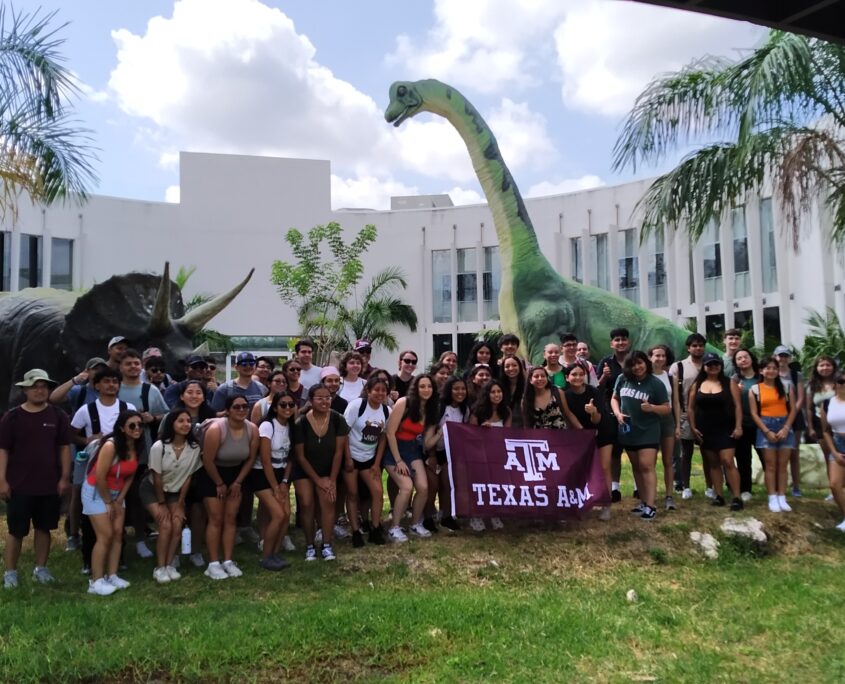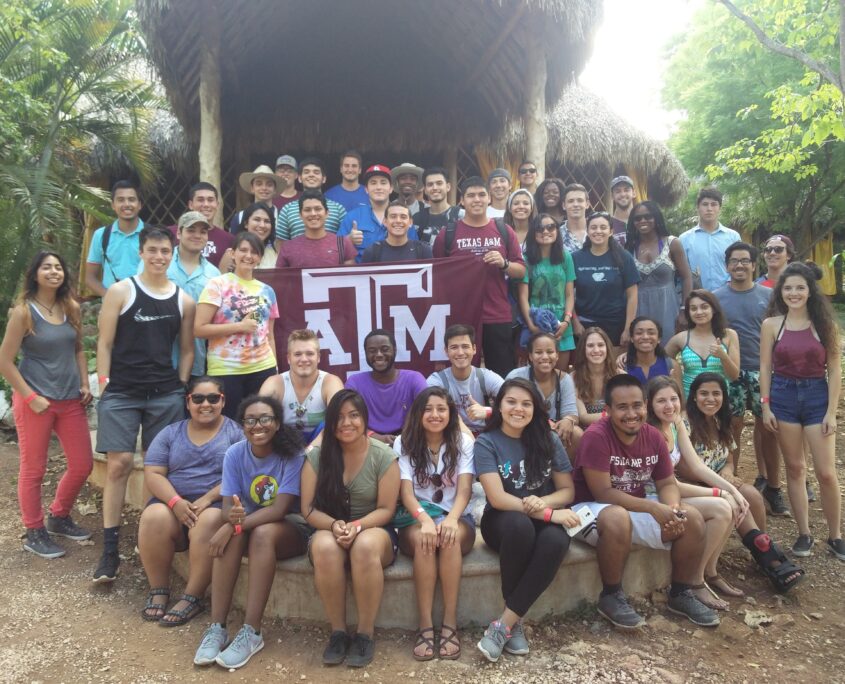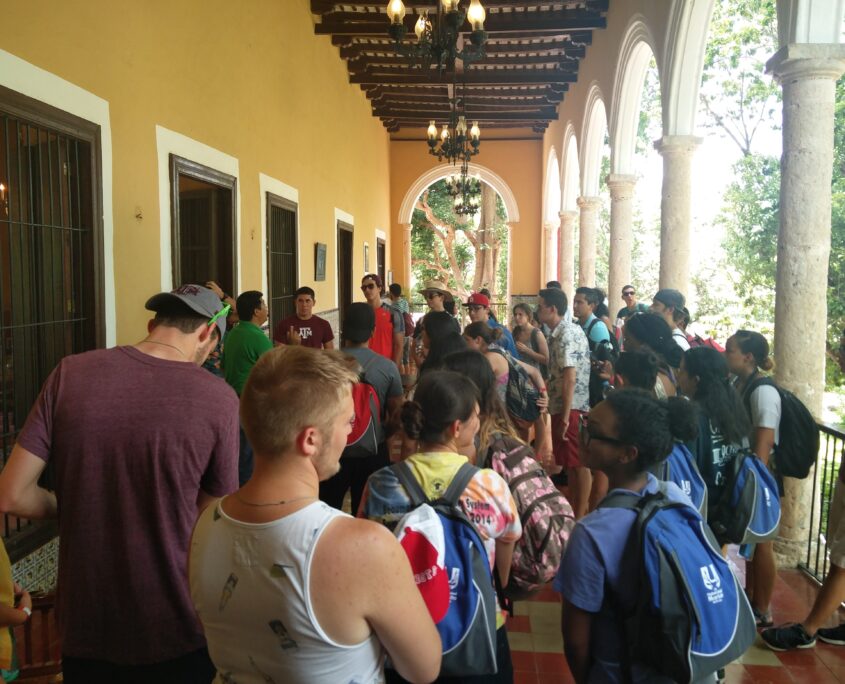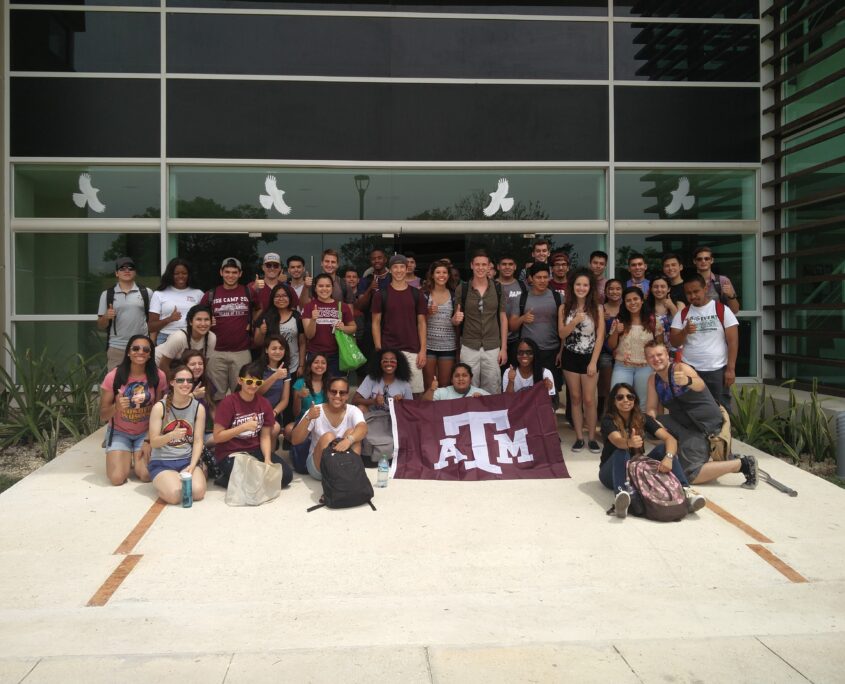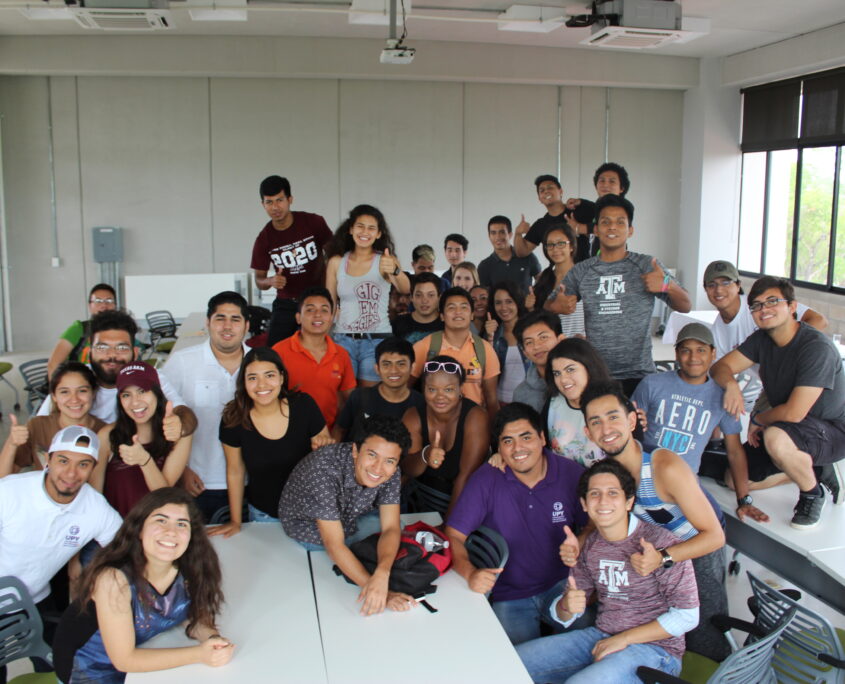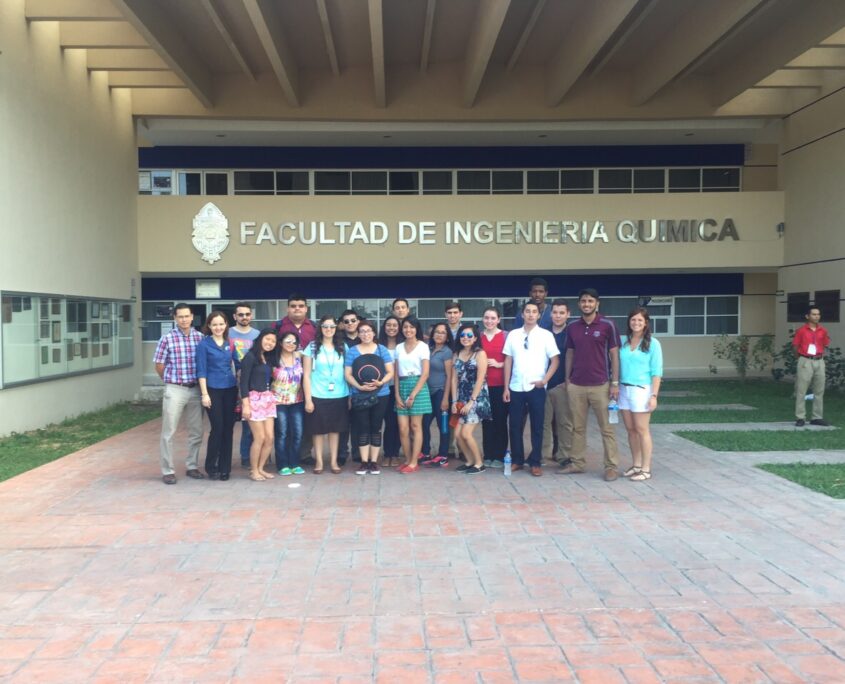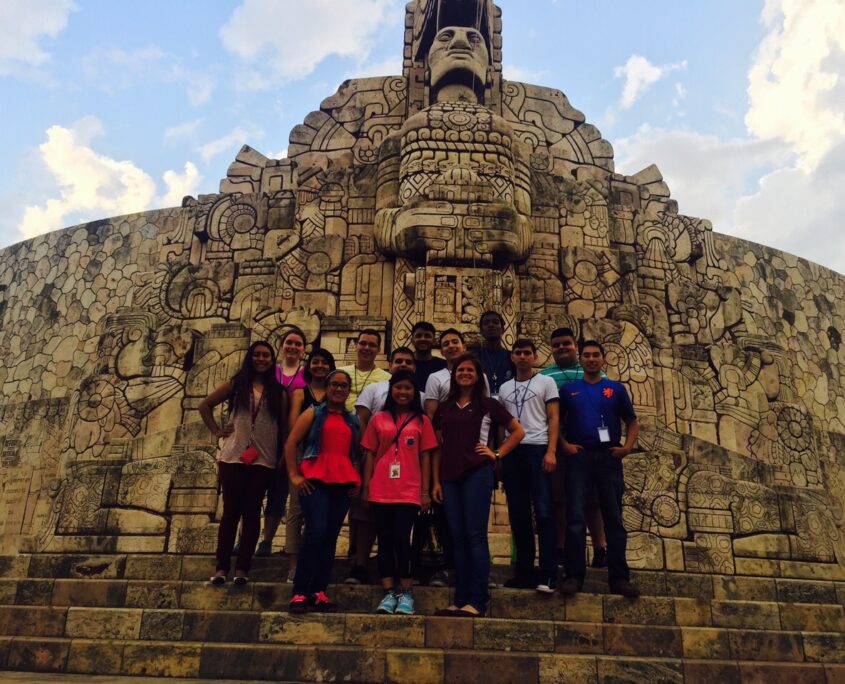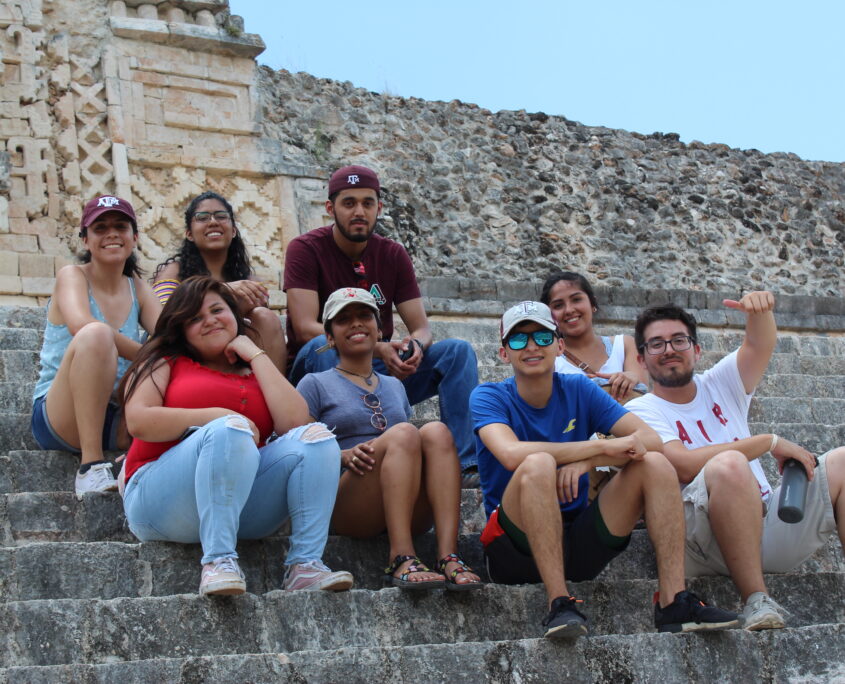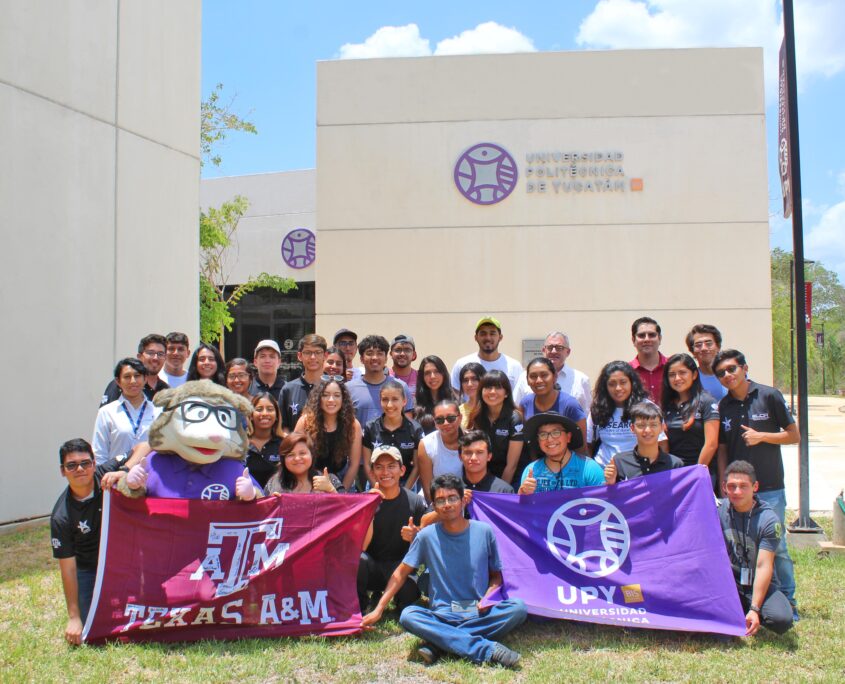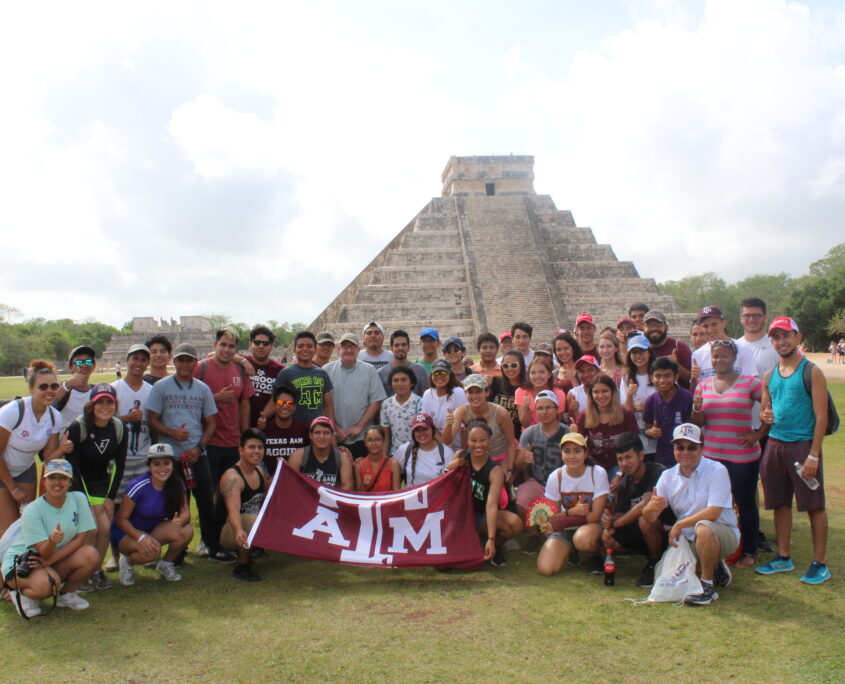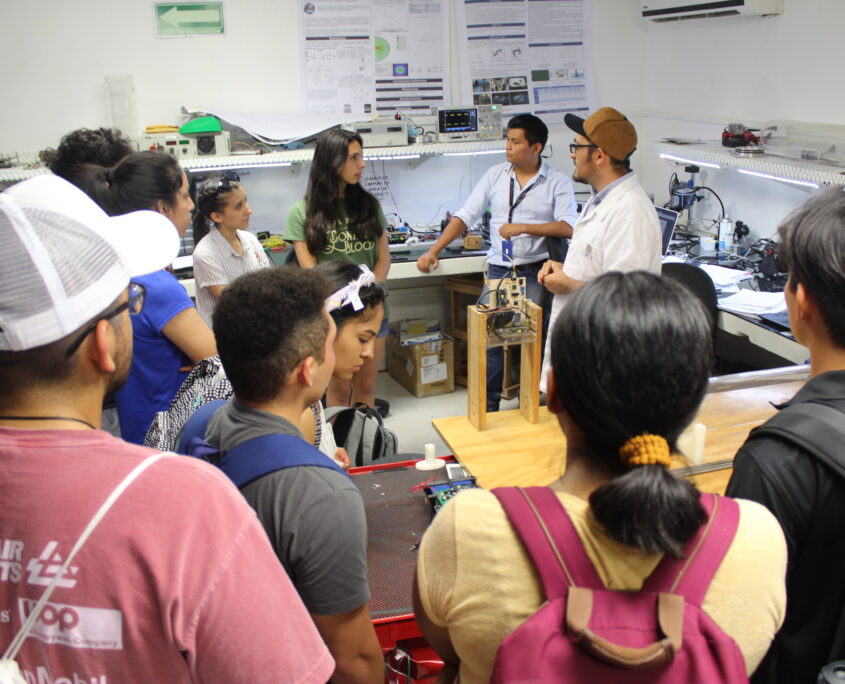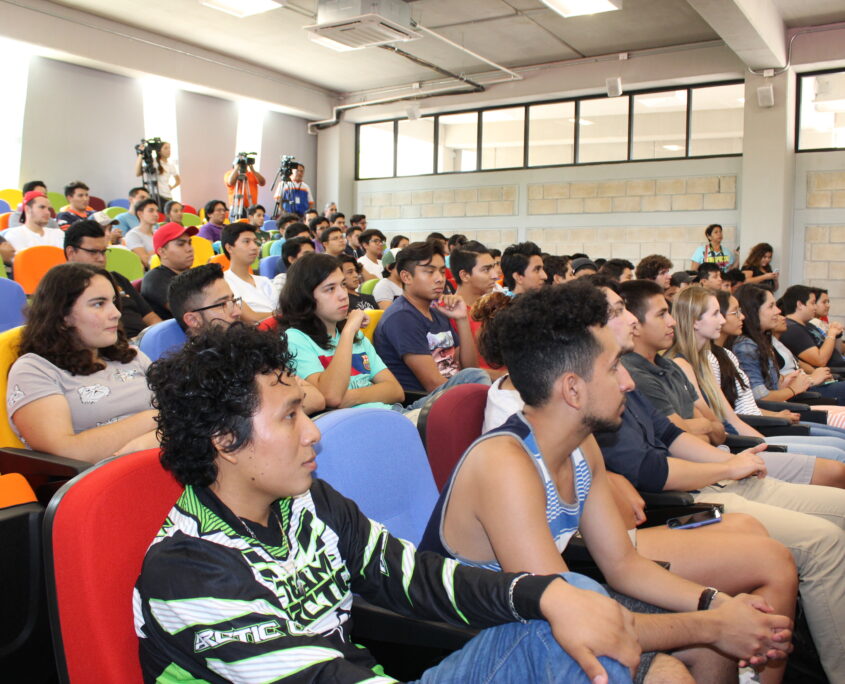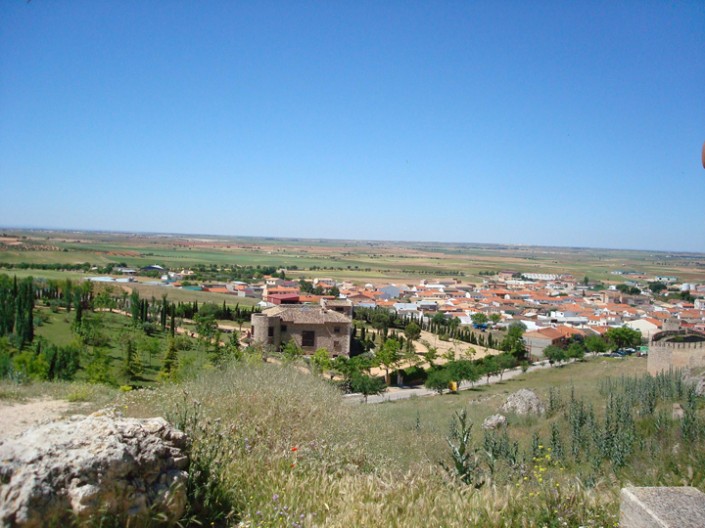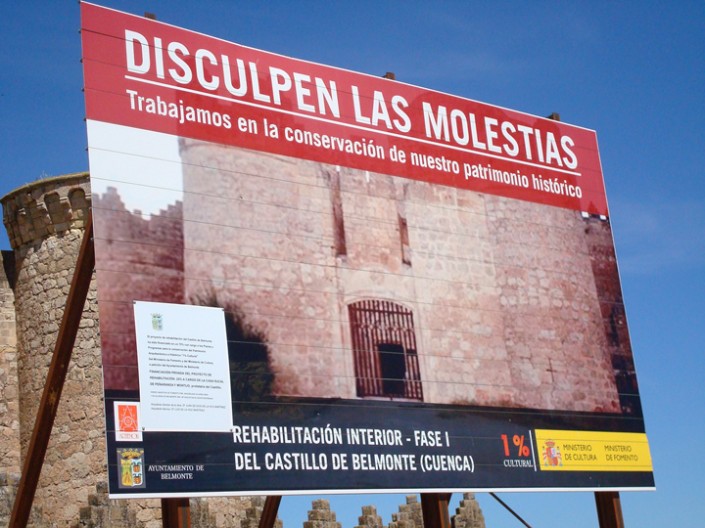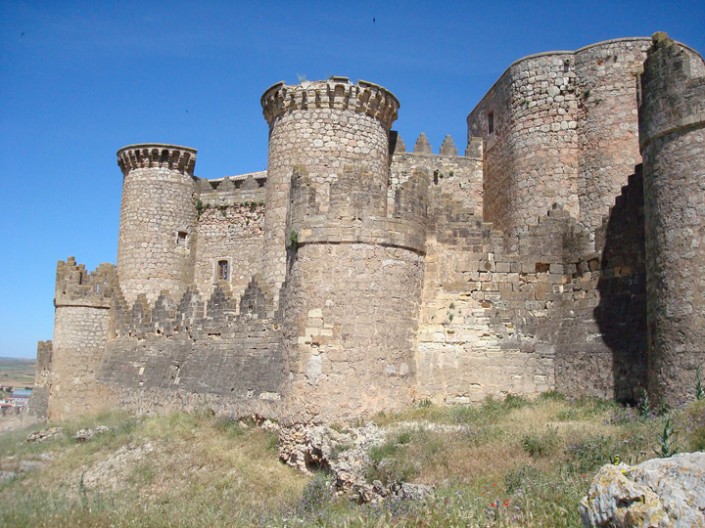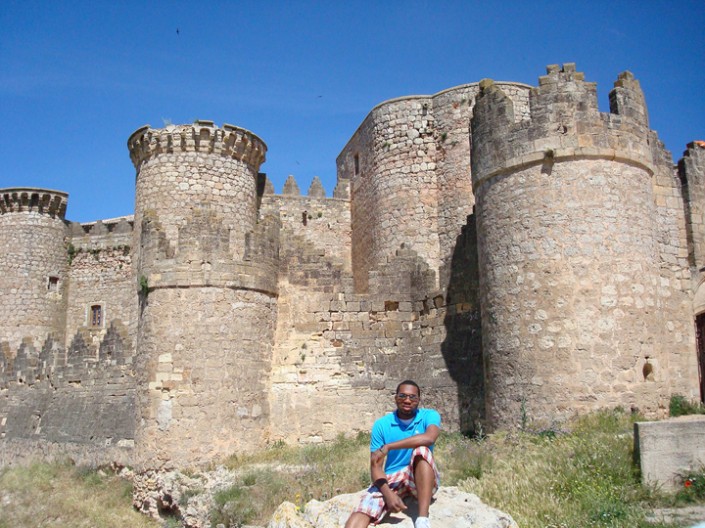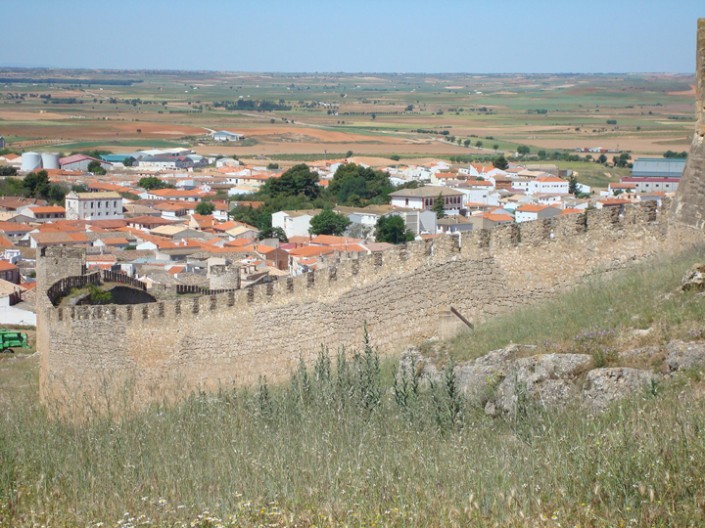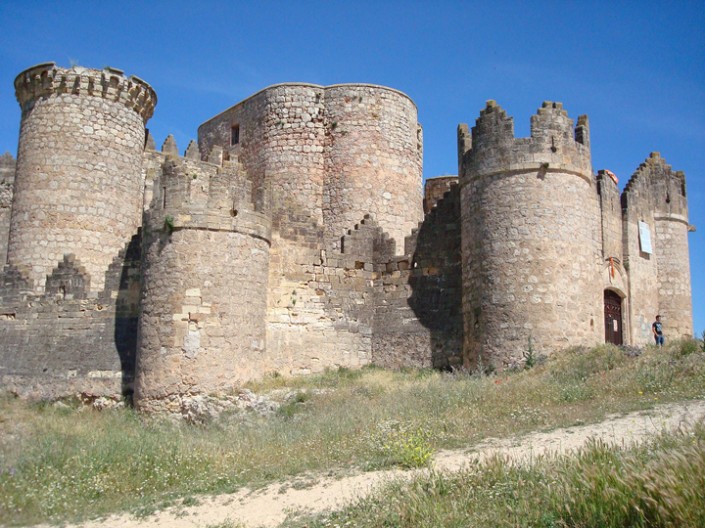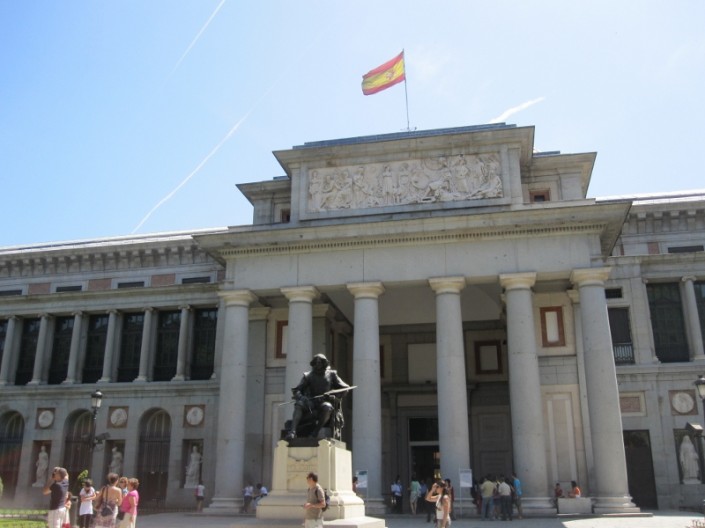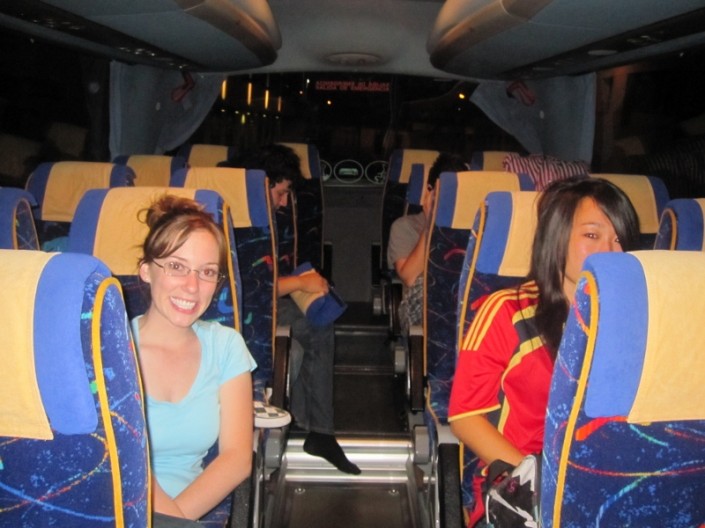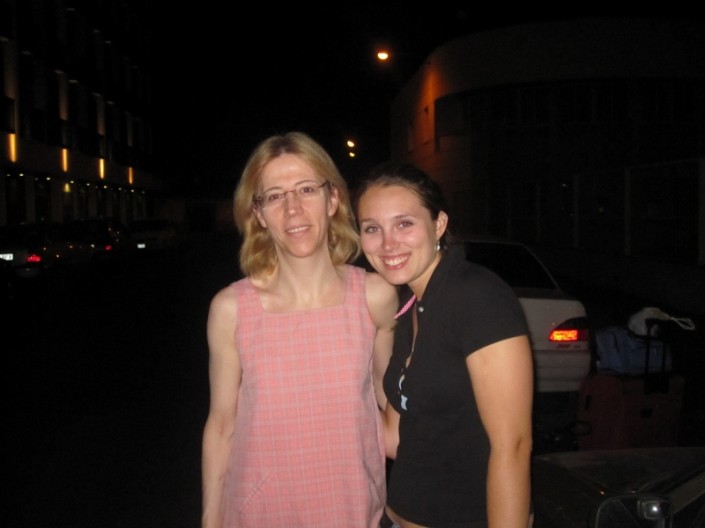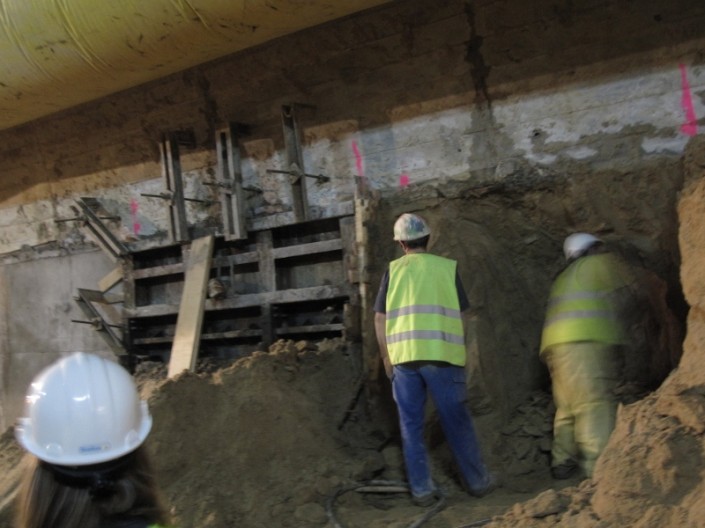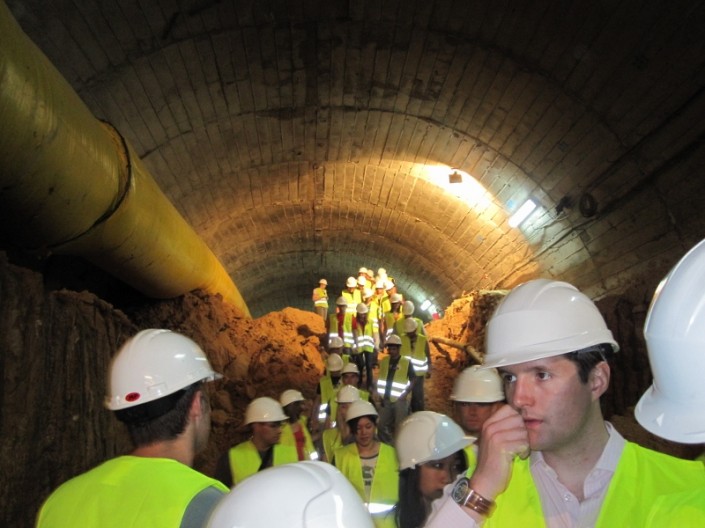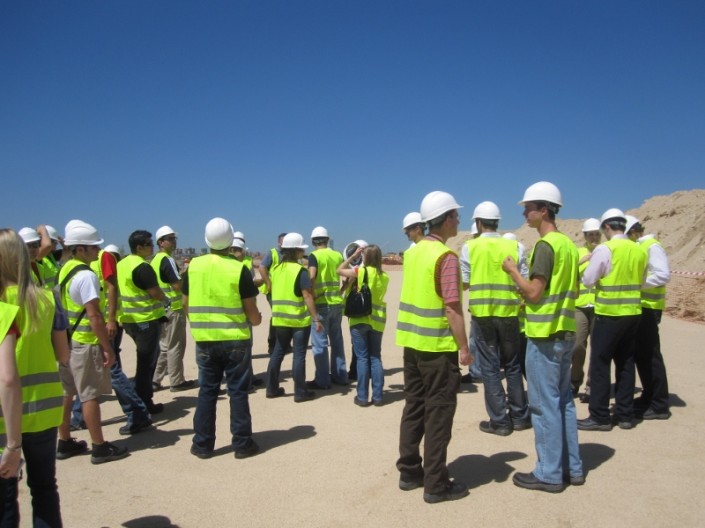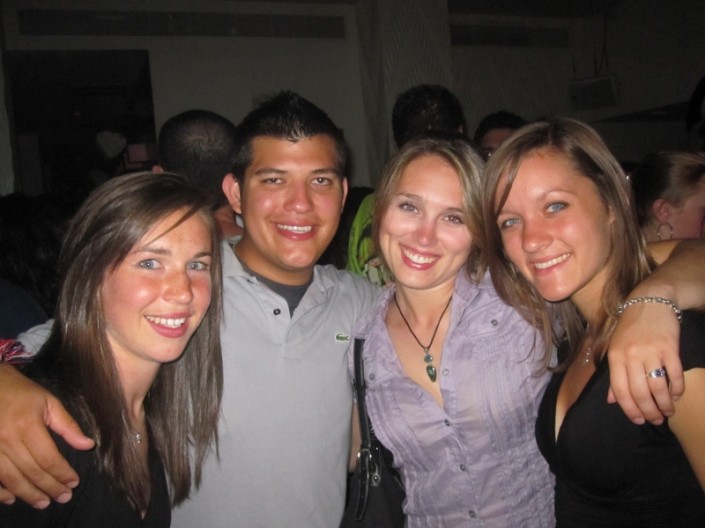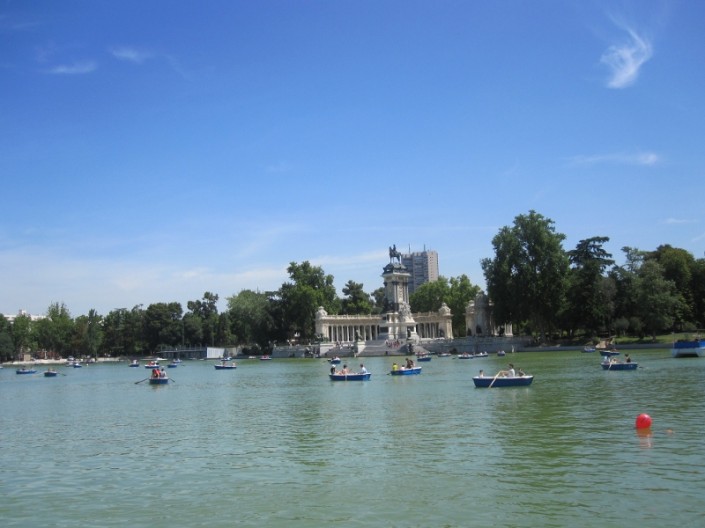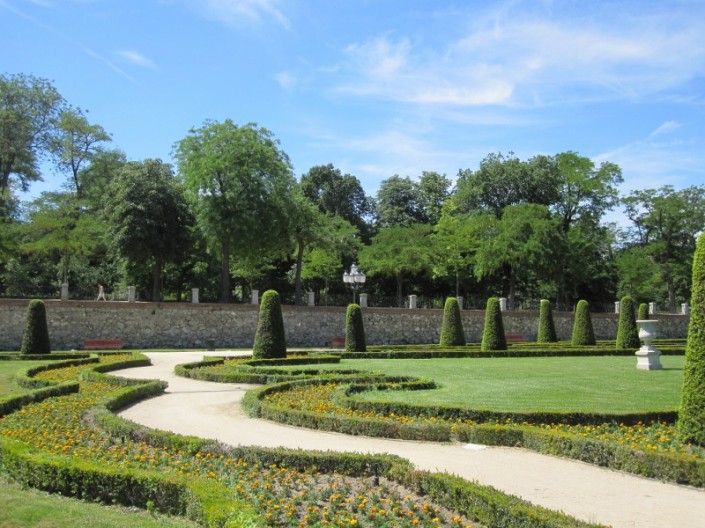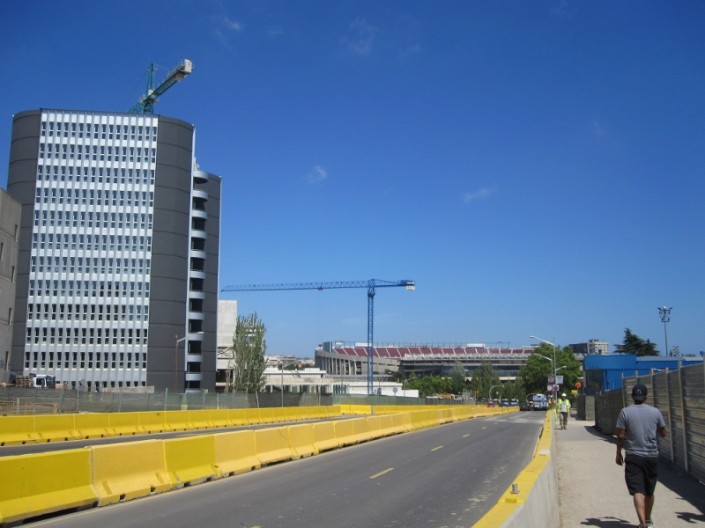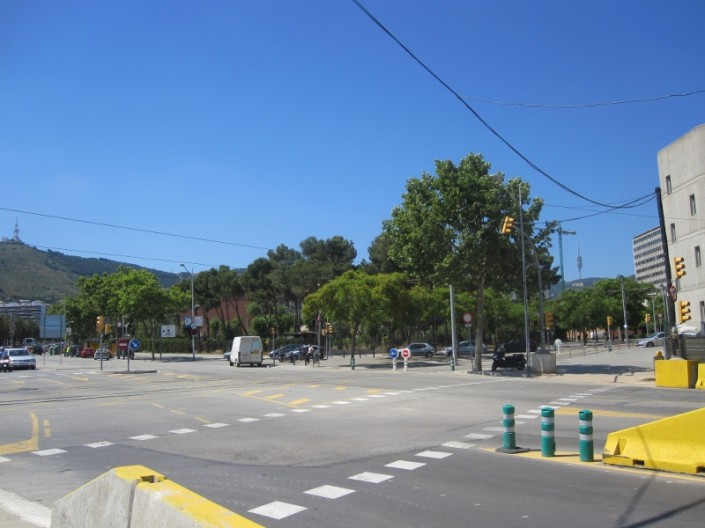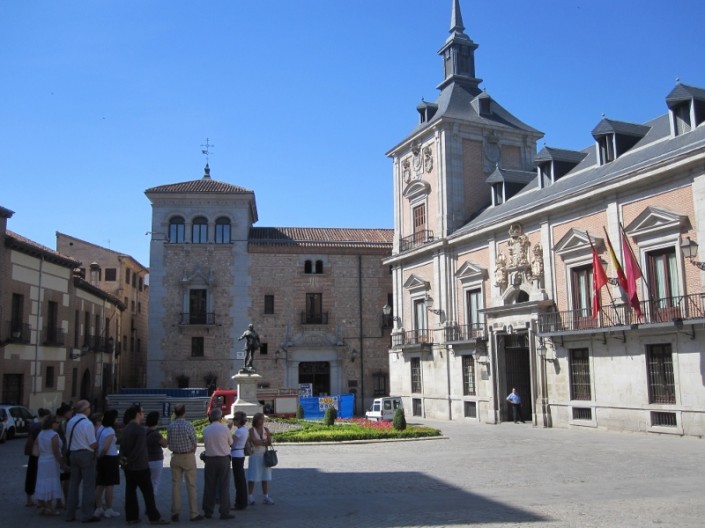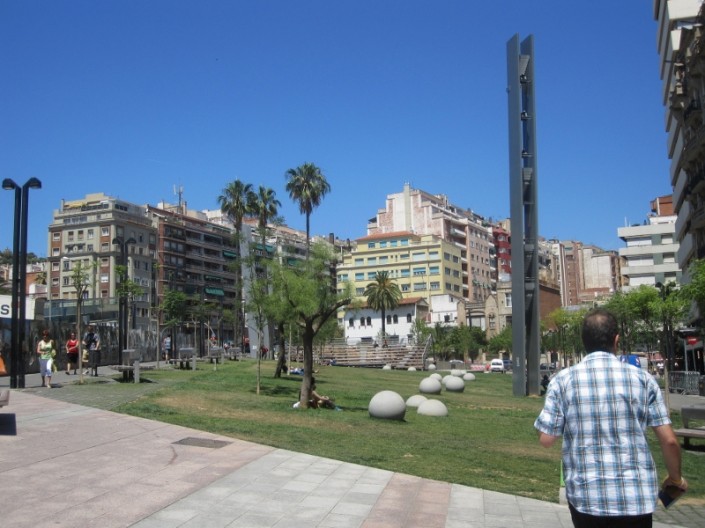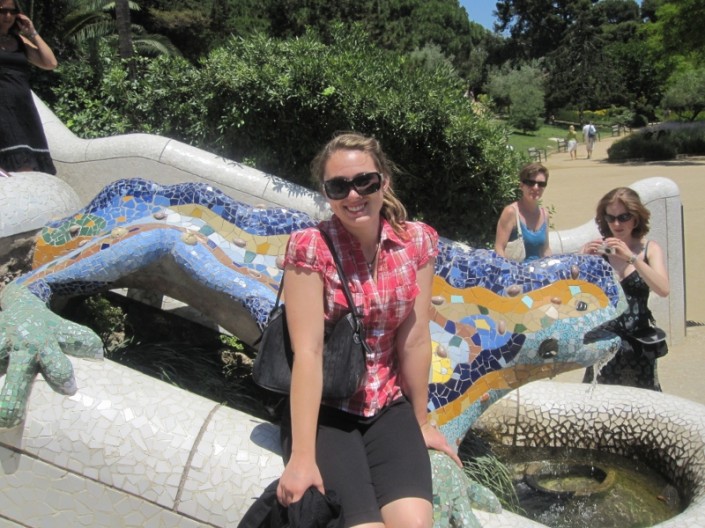International Research
Overview
Science and engineering research is increasing globally. Advanced global telecommunication networks are making it possible to have virtual global working teams. To assist our students in enhancing their technical skills and capabilities, in addition to exposure to working with people of other cultures, students participate in international research and study experiences.
TAMUS LSAMP encourages LSAMP students to participate in study abroad experiences to expose students to an in-depth experience with another language, culture, history, government, and economy and have field trips to sites that would involve direct interaction with professionals. Students have an option to stay in host homes or an apartment/hotel. Students have direct interaction with students and TAMUS faculty not only in a social setting, but in the classrooms as well. TAMUS LSAMP students have participated in international study locations including Brazil, France, Mexico, Spain, Asia, Costa Rica, Europe and Japan.
2008
In 2008, TAMUCC LSAMP participant, Adriana Leiva, participated in an international research experience in Mexico. Adriana’s research investigated strategies to save a critically endangered species of marine mammal, vaquita, from extinction caused by anthropogenic effects. This experience led to her return to Mexico in Summer 2009, for a 28-day mission aboard the R/V Atlantis for the first systematic exploration of waters deeper than 1000 meters in the Gulf.
2009
In Summer 2009, two TAMU LSAMP students participated in the NSF LSAMP Center for International Undergraduate Research (LSAMP-INT) program. This program provided awards for LSAMP students with significant previous research experience to participate in research in a variety of renowned laboratories around the world. TAMU LSAMP students Justin Wilkerson (Aerospace Engineering) and Alvaro Rodriguez (Biology), studied in Brazil and Europe, respectively. Today, both students are actively enrolled in doctoral programs.
2011
During Summer 2011 there were two PVAMU LSAMP students participating in a Spanish language and culture program in Barcelona, Spain. This experience provided insight into the language and cultural traditions of the country. TAMU LSAMP supported a total of five participants to study in three different countries during the same time period. Two participants went to Spain, two to Brazil, and one to Mexico to do research in STEM fields. Summer 2012 saw eight TAMU LSAMP students traveling out of the United States.
2012
Summer 2012 saw eight TAMU LSAMP students traveling out of country to do research. Four students went to Spain, one to Brazil, one to Dominica, one to Belgium, and one to study in both Mexico and Panama.
2013
The study abroad program during Summer 2013 sent three PVAMU LSAMP students from the College of Engineering to China to be exposed to experiences internationally that add to their overall experience as undergraduates. Students were enrolled in an elementary Chinese class as well as a mechatronics course where they conducted experiments and research projects as a part of their graded activities. The trip emphasized the importance of study aboard programs as a part of the undergraduate experience and provided students with a greater understanding and appreciation of working, studying, and living outside of the United States.
2015
Study Abroad with the PVAMU College of Engineering in China during Summer 2015 included five PVAMU URM participants. The participants enhanced the University’s international presence and engagement through leadership, support, and development of activities and exchanges that create a deeper global awareness among students, faculty, staff, and other stakeholders. They performed research in the engineering fields. The 5 students participating in the experience were DeMarcus Pierre, Victoria Livingston, Victoria Cummins, Scott Rossel, and Kayla Robinson.
2016
During the summer of 2016, five PVAMU College of Engineering students had the incredible opportunity to participate in a study abroad program in China. DeMarcus Pierre, Victoria Livingston, Victoria Cummins, Scott Rossel, and Kayla Robinson engaged in research in various engineering fields, enriching both their academic and global perspectives. Their participation not only contributed to the University’s international presence but also fostered deeper global awareness among students, faculty, staff, and stakeholders. This experience was made possible through TAMUS LSAMP, which supported five international experiences from PVAMU, alongside 15 from Texas A&M, during the summer of 2016.
2017
During the summer of 2017, fourteen PVAMU students were provided with the exciting opportunity to spend a semester in China, taking classes and engaging in research activities. Four of these students were funded by LSAMP, while the remaining ten received funding from the College of Engineering. This study abroad initiative not only enriched the students’ academic experiences but also contributed to the University’s international presence and engagement. Through leadership, support, and the development of various activities and exchanges, this program fostered a deeper global awareness among students, faculty, and staff.
2018
During Summer 2018, 1 student from College of Science – Stephanie Leon Quinonez traveled to French National Center for Scientific Research (CNRS) to collaborate with Dr. Emmanuel Gras in conjunction with LSAMP International Research Experiences for Undergraduates (iREU) program that was coordinated by Dr. Randy Duran. Stephanie worked on organic synthesis application for new PET imaging probes for Alzheimer’s and Tuberculosis with Dr. Gras.
TAMUCC’s College of Science and Engineering hosted an international research experience for third-year students that included a mixed team model of biology, engineering and geospatial science students. At the core of the program was the onsite study of Mesoamerican coral reef ecosystems in southern Belize from ridges to reefs. Students studied the diversity and ecology of the connected communities associated with the coral reefs and learned how the reefs are influenced by seagrass, mangrove, lagoon and riverine systems and how humans interact with and impact these systems. The hands-on experience consisted of field studies using numerous methods of sampling and parameter testing with particular emphasis on the integration of unmanned systems for data collection. Undergraduate and graduate students were supervised by faculty experts in coral reef ecology, coastal terrestrial ecology and unmanned systems. In addition to the technical training, students worked in teams on a class research project. The 3-week program included one week of pre-travel training and 2 weeks in the field. Ten undergraduate students per year were supported to participate in this program.
2019
In 2019, the ELCIR program facilitated a two-week study abroad experience in Mérida, Mexico, exposing first-generation college students to research and cultural diversity.
At the NICE Inaugural Meeting, Drs. Bird and Gauthier collaborated with LSAMP-NICE to host a symposium at the SACNAS National Conference, fostering international research collaborations. Dr. Bird’s outreach efforts extended to LSAMP-NICE partner countries, generating interest in international research despite funding challenges.
Engagement with Dean Pezold and other professors underscored the significance of international research experiences, promoting opportunities and best practices for student development.
2021
The COVID-19 pandemic significantly disrupted international research experiences offered through the Texas A&M University System Louis Stokes Alliance for Minority Participation (TAMUS LSAMP). Both the Engineering Learning Community Introduction to Research (ELCIR) and the Ridges to Reefs (R2R) programs were canceled in 2021 due to travel restrictions and safety concerns.
ELCIR, aimed at engaging first-year engineering students in hands-on research and cross-cultural experiences, had its cohorts for Spring 2020 and Spring 2021 canceled. Similarly, R2R, a research-driven field course focused on coral reef ecosystems, was unable to proceed as planned.
Despite these challenges, LSAMP remains committed to providing enriching international research opportunities for underrepresented minority students in STEM fields. Plans for the 2022 cohort of ELCIR are contingent on COVID-19 travel guidance, with administrators aiming to prioritize safety while fostering academic and professional development.
2022
In 2022, TAMUS LSAMP resumed international programming after COVID-19 disruptions. The Engineering Learning Community Introduction to Research (ELCIR) expanded with the Introduction to Research Abroad Program (IRAP). LSAMP sponsored 18 students for these programs. Additionally, LSAMP aimed to sponsor 11 participants for TAMUCC’s Ridges to Reefs (R2R) program in Belize. Survey data showed significant growth among participants, informing a conference paper submission to the American Society for Engineering Education. Despite challenges, TAMUS LSAMP continues to provide underrepresented minority students with invaluable global opportunities for academic and personal growth.
2023
In the summer of 2023, twenty-eight first-year engineering students embarked on a transformative journey to Yucatan, Mexico, as part of the Introduction to Research Abroad Program (IRAP). Inspired by previous collaborations such as Stephanie Leon Quinonez’s work with Dr. Emmanuel Gras at the French National Center for Scientific Research, IRAP aimed to foster research skills and cross-cultural understanding.
Under the guidance of faculty mentors, students explored diverse research topics, from coastal acidification to urban development challenges. Their findings were showcased during the IRAP Closing Ceremony Day, highlighting their commitment to addressing global issues creatively and empathetically.
IRAP continues to shape the next generation of leaders and innovators, building upon the legacy of international research excellence at Texas A&M University.
Engineering Learning Community Introduction to Research
TAMU LSAMP funded 15 College of Engineering (COE) First Generation Undergraduate Engineering Regents’ Scholars to engage in the Engineering Learning Community Introduction to Research (ELCIR) program during a two-week trip to Merida, Yucatan. The project began in March with a series of orientations prior to the trip. The orientations prepared the students for the trip. While in the Yucatan the students were partnered with faculty research mentors at the University of ANAHUAC in Merida, Yucatan. The students ended the program in Fall 2015 with a Global Experience and Introduction to Research and Online Community to complete the research project conducted while in the Yucatan. Students presented their research project proposals at an ELCIR poster session. TAMUS LSAMP supported 15 College of Engineering (COE) students to engage in the study abroad research opportunity at the University of Anahuac in Merida, Yucatan during Summer 2016. As an incremental progression, TAMUS LSAMP successfully supported 25 students during Summer 2016, while Summer 2017 saw 29 ELCIR participants being supported by the LSAMP program. Consistently enough, TAMUS LSAMP supported 25 ELCIR students during Summer 2018.
